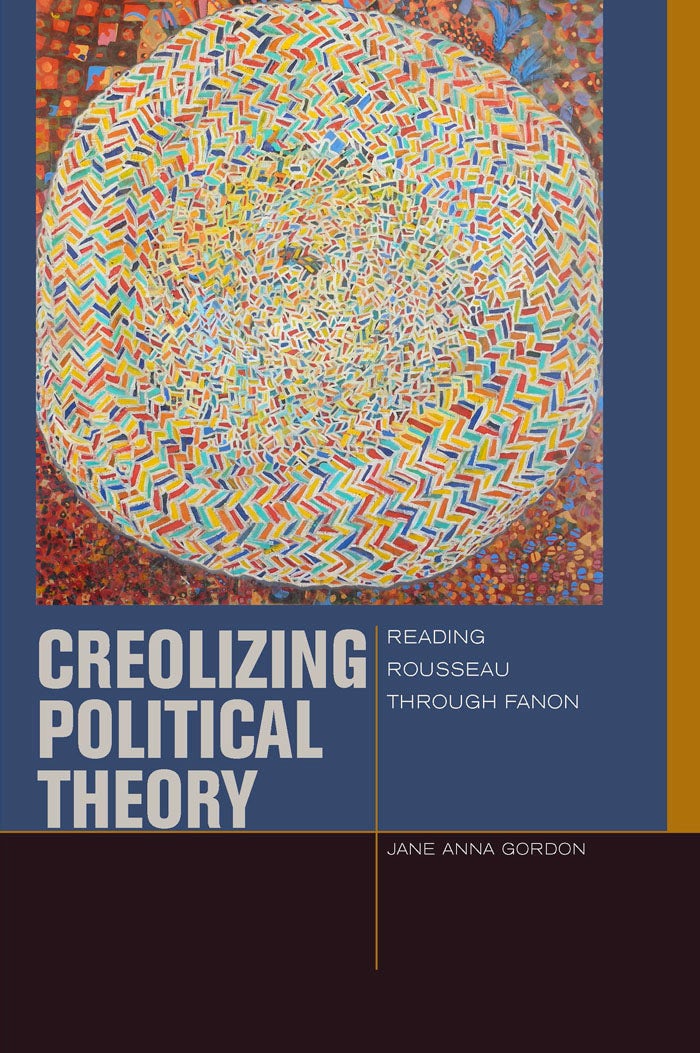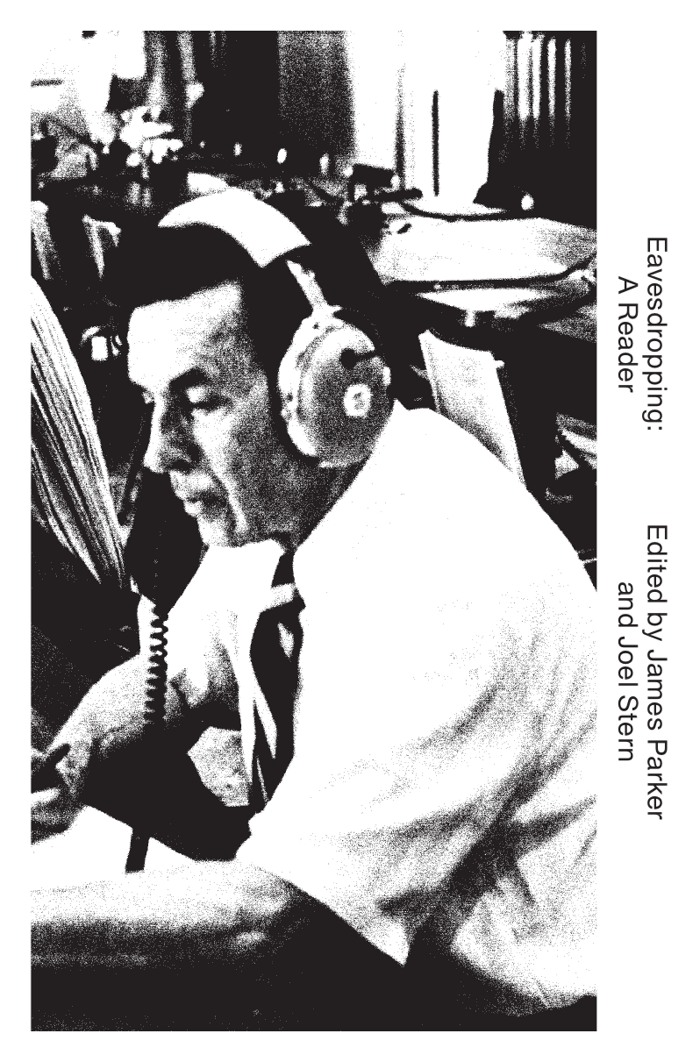Jane Anna Gordon: Creolizing Political Theory: Reading Rousseau through Fanon (2014)
Filed under book | Tags: · black people, colonialism, creolization, decolonization, freedom, governance, law, modernity, political theory, politics, power, race, theory

“Might creolization offer political theory an approach that would better reflect the heterogeneity of political life? After all, it describes mixtures that were not supposed to have emerged in the plantation societies of the Caribbean but did so through their capacity to exemplify living culture, thought, and political practice. Similar processes continue today, when people who once were strangers find themselves unequal co-occupants of new political locations they both seek to call “home.”
Unlike multiculturalism, in which different cultures are thought to co-exist relatively separately, creolization describes how people reinterpret themselves through interaction with one another. While indebted to comparative political theory, Gordon offers a critique of comparison by demonstrating the generative capacity of creolizing methodologies. She does so by bringing together the eighteenth-century revolutionary Swiss thinker Jean-Jacques Rousseau and the twentieth-century Martinican-born Algerian liberationist Frantz Fanon. While both provocatively challenged whether we can study the world in ways that do not duplicate the prejudices that sustain its inequalities, Fanon, she argues, outlined a vision of how to bring into being the democratically legitimate alternatives that Rousseau mainly imagined.”
Publisher Fordham University Press, New York, 2014
Just Ideas series
ISBN 9780823254811, 082325481X
xv+294 pages
Reviews: Anne Norton, Sharon Stanley, Fred Lee, Thomas Meagher (with author’s response, Contemporary Political Theory, 2018).
See also: Forum on Creolizing Theory (ed. Lewis R. Gordon, Journal of French and Francophone Philosophy, 2017), The Creolization of Education, Pedagogy, and Political Theory (ed. Lewis R. Gordon, Review of Education, Pedagogy, and Cultural Studies, 2018).
James Parker, Joel Stern (eds.): Eavesdropping: A Reader (2019)
Filed under book | Tags: · law, listening, sound, sound art, sound studies, surveillance

“Eavesdropping: A Reader addresses the capture and control of our sonic world by state and corporate interests, alongside strategies of resistance. For editors James Parker (Melbourne Law School) and Joel Stern (Liquid Architecture), eavesdropping isn’t necessarily malicious. We cannot help but hear too much, more than we mean to. Eavesdropping is a condition of social life. And the question is not whether to eavesdrop, therefore, but how.”
Featuring contributions from James Parker, Joel Stern, Norie Neumark, Lawrence Abu Hamdan, Susan Schuppli, Sean Dockray, Joel Spring, Fayen d’Evie and Jen Bervin, Samson Young, Manus Recording Project Collective.
Publisher City Gallery Wellington, Wellington, with Liquid Architecture, Melbourne, and Melbourne Law School, Melbourne, 2019
Open access
ISBN 9780995128606, 099512860X
223 pages
Review: Kristen Gallerneaux (The Wire, 2020).
Exh. reviews: Norie Neumark (Art+Australia, 2018), Sophie Knezic (MeMO, 2018).
Project website
Exhibition (2018)
Exhibition (2019)
Publisher
WorldCat
Computational Culture, 7: Apps and Infrastructures (2019)
Filed under journal | Tags: · app, computation, data, infrastructure, law, software, software studies
A special issue of the journal, dedicated to the research of apps and infrastructure, with a special section on ‘Critical Approaches to Computational Law’ edited by Simon Yuill.
Contributions by Jeremy Wade Morris and Austin Morris; Carolin Gerlitz, Anne Helmond, Fernando van der Vlist, and Esther Weltevrede; Rowan Wilken, Jean Burgess, Kath Albury; Esther Weltevrede and Fieke Jansen; Michael Dieter and Nathaniel Tkacz; Stacy E. Wood; Johannes Paßmann; Théo Lepage-Richer; Mara Karagianni; Ezekiel Dixon-Roman, Ama Nyame-Mensah and Allison B. Russell; Winnie Soon; Matthias Plennert, Georg Glasze and Christoph Schlieder.
Edited by Carolin Gerlitz, Anne Helmond, David Nieborg, and Fernando van der Vlist
Published in October 2019
Open access
ISSN 2047-2390

